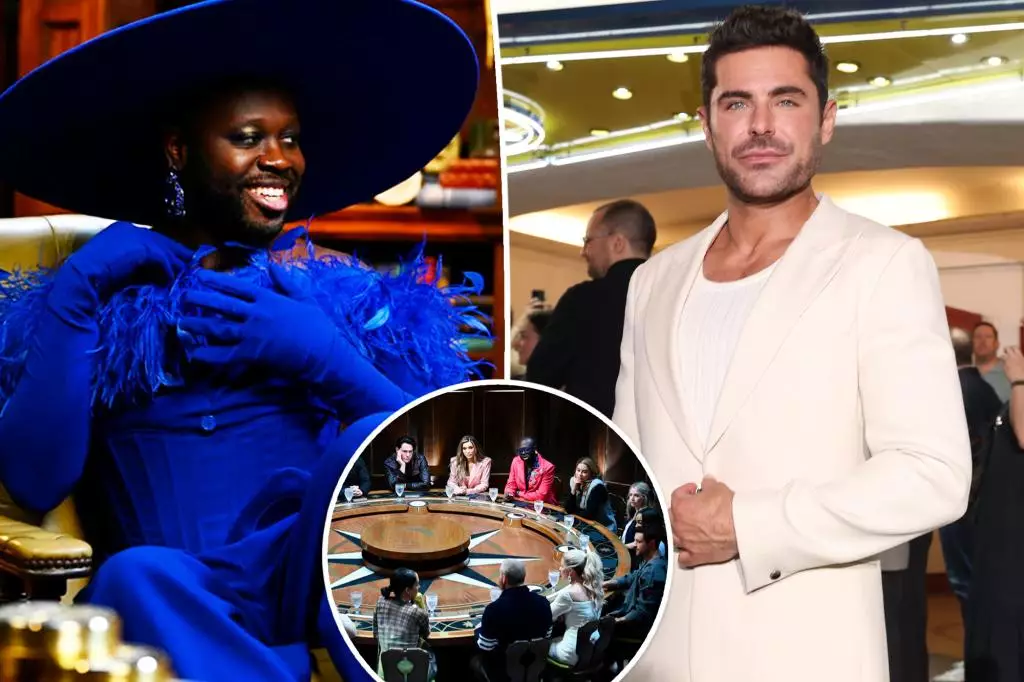In a recent episode of Peacock’s reality series “Traitors,” a riveting exchange unfolded between Bob the Drag Queen and Dylan Efron that has captured the attention of viewers and pop culture enthusiasts alike. Taking place at the infamous roundtable, where strategies collide and alliances are tested, tensions erupted when Dylan expressed his suspicions about Bob’s loyalty. The dynamics of familial relationships and artistic personas set the scene for a dramatic showdown.
Dylan Efron, at the young age of 32, displayed a surprising level of confidence as he pointedly labeled Bob the Drag Queen a traitor. His reasoning was simple and strategic: he posited that a traitor might thrive in subtlety and discretion, making Bob’s larger-than-life persona a prime suspect. Dylan’s statement, “Like what’s the easier game for a traitor to play?” reflects a keen understanding of the psychological game at play—an analysis that likely echoes his experience behind the scenes in film production.
As tension mounted, Bob the Drag Queen, aged 38 and known for his fierce presence on “RuPaul’s Drag Race,” fired back with a sarcastic jab at Zac Efron’s acting credentials, stating, “Not a good one.” This quip not only highlighted the fierce rivalry in the moment but also underscored the complex interplay of familial loyalty and personal critique in the realm of entertainment. The dig demonstrated Bob’s quick wit but also positioned him in a precarious situation, as attention shifted to the familial ties that bind the Efron brothers.
Despite Bob’s spirited defense, the tides turned in Dylan’s favor, with a majority of contestants siding with his theory. This led to Bob’s elimination from the game—a clear representation of how public perception and group dynamics can shape outcomes in reality television. As he confirmed his status as a traitor while exiting, the moment resonated as a stark reminder of the fragility of alliances in the cutthroat world of competitive gaming.
Post-elimination, Bob received a nod of approval from Dolores Catania, a prominent figure from “Real Housewives of New Jersey,” who commended Dylan’s decisive actions. This acknowledgment points to the significance of external validation within the sphere of reality television, reiterating how public figures can rally support and influence perceptions.
In interviews prior to this incident, Dylan expressed admiration for Zac’s craft, recognizing the distinct skill sets required for acting compared to his own behind-the-scenes role. With a background as a production coordinator and producer on notable films and shows, Dylan has cultivated a unique place within the industry. His transition into a more visible role on “Traitors” may reflect a personal evolution that fans have been eager to witness.
As Zac Efron publicly backed his brother’s new undertaking, the dynamics within the Efron family and their respective careers took center stage. The confrontation on “Traitors” may have highlighted a rivalry sparked by a mix of familial expectations and individual ambitions, creating a narrative that resonates with audiences far beyond the confines of the competition. The interplay of drama, humor, and familial bonds will undoubtedly leave lasting impressions on viewers and perhaps even shape how we perceive the Efron legacy in the entertainment industry.

